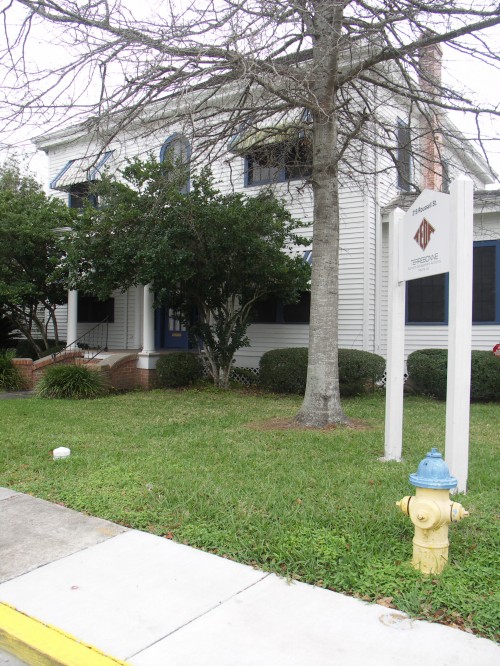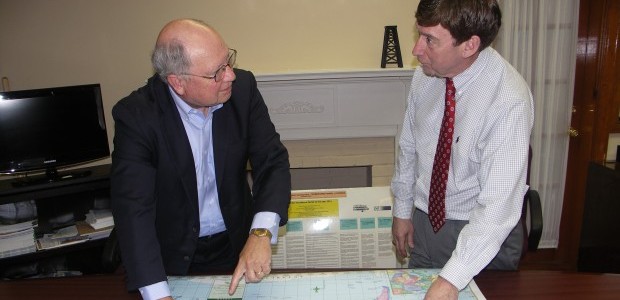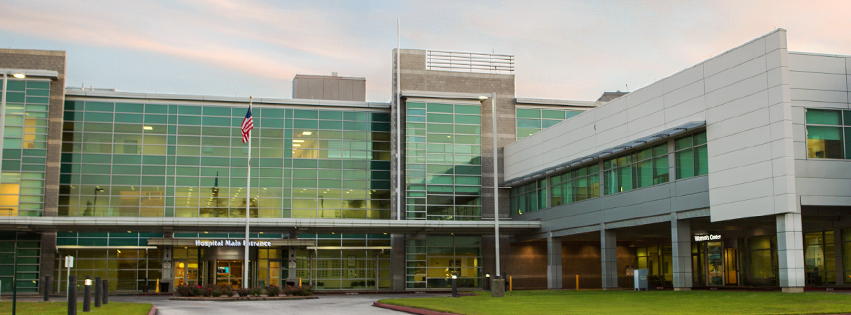St. Mary council takes aim against La. budget measures
February 28, 2012
TEDA opens office space for rent
February 28, 2012The Terrebonne Economic Development Authority Community Development Task Force has entered into preliminary talks about possibly forming an industrial sister city relationship between south Louisiana folks and the parish they comprise with businesses of Weihai, in the People’s Republic of China.
Approximately 7,330 miles might not be the only distance that separates these two regions. Similarities could draw them together, or generate concern because of duplicity between two coastal areas that each rely heavily on oil and gas, and seafood for economic stability.
“Everything we do is to build on relationships,” TEDA CEO Steve Vassallo said. “To have that kind of relationship with a foreign entity would make us more international. There is not a city in Louisiana right now that has a formal relationship with China, plus the Chinese are being forecast to invest $1 trillion during the next three to five years.”
Vassallo has conducted extensive research into the concept of sister cities and has advocated the idea since coming into his job six months ago. By building relationships, Vassallo has been joined in selling this effort by AmerEducation International President Michael McKee.
McKee spent the bulk of his career as a teacher and school administrator. Following retirement from the traditional halls of education, the Houma resident now runs a company that coordinates efforts for foreign exchange student programs. He said he wants to make use of his global contacts, at no charge, and help establish connections locally as a citizen exercising his civic involvement.
“I have a very good friend who is the manager of a very large manufacturing plant in Weihai,” McKee said. “I [also] have very good friends in the provincial government who are in charge of foreign affairs. If this comes to fruition, Houma would not only benefit from a relationship with Weihai, but it will benefit because of our relationship with the provincial government.”
Prospect Profiled
Weihai is located on the eastern tip of the Shandong peninsula. The city faces across the East China Sea toward the Korean peninsula (only 93 nautical miles away) and Japan.
With a population of 2.8 million people (the New Orleans metropolitan area is listed at 1.1 million post-Katrina), Weihai is experiencing one of the fastest economic growth rates of any city in China.
In addition to offshore petroleum and seafood operations, Weihai has become an automotive manufacturing center with 56 parts and assembly plants. Shipbuilding has also become important to the city and surrounding area.
International electronics manufacturers have a strong presence in Weihai, including South Korean-owned Samsung, Japan-owned Hauling, and Taiwan-owned Dongxin Electronics and ASE Group.
The diverse economy of this Chinese city includes textiles, food production, pharmaceuticals, along with wind and nuclear energy development.
“In the future, Weihai city will give full play to the strong industrial foundation, focusing on developing technology and products with independent intellectual property rights, promoting the transformation of high end manufacturing and innovation for the electronics and information industry,” Weihai Foreign Affairs Office spokesperson Yuchen Zhao said in an email correspondence.
“China’s economy and so forth is progressing so rapidly and it has become very westernized,” McKee said. “You go to China today and signs are in English. You see McDonald’s and other American companies there. They are excited because they want a mutual benefit, just like we want a mutual benefit.”
“At present Weihai has established friendly and cooperative relationships with 48 cities in 23 countries worldwide,” Zhao said. “We are very excited about this project [and] planning to send a delegation to Terrebonne sometime this year.”
Questions Considered
While the full TEDA Board of Commissioners waited for a recommendation from its task force, consolidated government leaders voiced their thoughts and pitched questions that the Terrebonne Parish officials would want answered before considering any final stamp of approval for an international relationship.
“It’s only in the discussion stage right now,” Terrebonne Parish President Michel Claudet said of the sister city proposal. “Any finalization would have to go through the parish council.”
Working cooperatively with the TEDA task force, Claudet’s office presented a list of questions for representatives from Weihai to answer. The idea was to make Terrebonne decision makers more comfortable with considering the prospects. Six of eight questions received responses.
Among the questions asked was how a sister city relationship might impact the seafood industry of Terrebonne Parish. The response was itself a question regarding the variety of seafood offerings from Terrebonne Parish. Oil and gas industry-related questions yielded no direct answer. Chinese respondents said only that they have both offshore and inland oil fields.
Weihai representatives did, however, express interest in exchanging efforts to enhance medical research and treatment with facilities such as the Mary Bird Perkins Cancer Center and the Cardiovascular Institute of the South. They also commented on the possibility of educational exchanges with Nicholls State University and Fletcher Technical Community College.
“I can certainly see benefits [in the sister city arrangement],” Claudet said. “The Chinese market is one of the largest markets in the entire world. If there is something we can do that would be able to allow us to either sell goods or services in that area, or for them to come and provide technology or services for our area, that would be good for us.”
“This is so premature it is almost not worth writing about,” Terrebonne Parish Councilman and seafood processor Danny Babin said. The elected official followed that statement by noting that it does not hurt to talk.
“You never know until you find out what their needs are, what you can do for them and what they can do for us,” Babin said. “There is a possibility that we might want to export something to them, but it is so preliminary I hate to speculate.”
Industrial Insights
Leaders in the region’s two primary industries contend that the sister city concept is one that cannot be accepted or dismissed easily.
“I think it is an interesting concept,” Louisiana Oil and Gas Association President Don Briggs said. “However, I believe the Chinese would learn a lot more from us and our industry than we would from them.”
Briggs said that Louisiana has been a global learning ground for the development of industry and natural resources. He added that expanding the offering of technological knowledge could offer a good return on investment.
“You never know what will come out of a relationship like that,” the oil and gas leader said. “Some of our companies could develop a foreign partnership or investment opportunities over there, as well as here in the United States with their companies.”
“There is always concern that imports would have an impact, but they could actually have a positive impact,” Motivatit Seafood Owner/CEO and seafood industry leader Mike Voisin said.
“Building a relationship in Terrebonne with somebody in China … there already are imported shrimp and seafood products that come into Terrebonne,” the seventh generation oyster processor said. “Is that a positive? It could be. Could it be a negative? It could be that as well.”
Gulf fishermen have been vocal regarding seafood imports that are in direct competition with their catches, often at prices that undercut theirs. Industry insiders said as long as there are strict controls, a sister city arrangement that offers exports as well as imports could bring benefits, particularly to those controlling the trading.
“Any sister city relationship; you have to look at it holistically,” Voisin said. “I don’t know the answer, but from the seafood perspective it could be positive.”
Voisin is a member for the TEDA Board of Commissioners, but said while he felt comfortable speaking for his professional industry, he wanted to be clear that he was not speaking for TEDA.
Commitment Concerns
Not everyone has positive feelings about talking sister city with Weihai. As a leader among the South Louisiana Patriots, a conservative political organization associated with Tea Party activism, Stacy Hargenrader said she opposes entering a formal relationship with any Chinese entity.
“[The sister city concept] is not a good idea because they do not have the same belief system we have,” Hargenrader said. “They use cheap labor that is almost slave labor. I’m also not for crawling in bed with someone that has such a bad record on human rights.”
The SLP leader was not the only person to express that concern about doing business with China based on its human rights practices. Secretary of State Hillary Clinton has gone on record calling China’s human rights record “deplorable.”
Amnesty International lists an estimated 500,000 people currently under punitive detention in China, mostly for voicing opposition to government practices. The Communist nation has restricted free communication and even blocked Internet sites that had postings in opposition to government views. It is a practice that does not sit well with many Americans regardless of political affiliation or personal background.
However, the Chinese leadership has allowed capitalism to flourish, according to McKee, and that is a point in its favor. “China is a capitalistic country under an autocratic government. [They] have created a different model in the world and proved to be a capitalistic society you do not have to be a democracy first.”
Besides politics and human rights issues, some individuals were less than enthusiastic about entering relationships with a Chinese city on a more practical level.
The city of Santa Barbara, Calif., is the only U.S. municipality to currently have a sister city relationship with WeiHai. Although theirs is more educational in nature than industrial, as is being considered by the TEDA task force, Santa Barbara spokesman Joe Cantrell said of the six foreign sister cities that city has, WeiHai is the most difficult with which to maintain a relationship.
“[It is] because of the distance and the barriers,” Cantrell said. “It is a long trip and not easy getting people to travel back and forth.”
The California city official said that sister city relationships are only as valuable as the amount of time and effort put into them. “It is a nice thing, but it tends to go in cycles,” he said. “A bunch of people get interested. Then those people get older or fatigued from what they are doing to maintain a relationship.”
“I’m not comfortable having more Chinese products in our country,” Hargenrader said. “I think [it would be] alright to partner with another country that has our same value system of how we value life.”
Present Possibilities
Terrebonne Parish currently has a cultural sister city relationship with Cambrai France. An industrial relationship with WeiHai, according to supporters, would be more aggressive in nature than those of a more artistic design.
“Ten countries account for two-thirds of Louisiana exports by tonnage [in 2010],” Vassallo said. “China and Japan account for about a third of the total [and] China led with 14 million [tons]. The tangible benefits are bringing direct foreign investment into your community that otherwise would not even be considered.”
The TEDA CEO added that developing sister city talks to the point of action could take up to 18 months.
“Today’s China is not your grandmothers China,” McKee aid. “Very often people do not understand that when you are in China, you are in an environment that looks like any American city.”
“I’m always receptive to trying to get more information,” Claudet said. “I don’t have money budgeted for this and dialogue is going to continue for ages. If there is something that would be beneficial to the people of our area – that would be wonderful.”
According to Sister Cities International, understanding differences in language and culture, volunteer administering of programs, and even financing by the payment of dues among participants need to be clearly understood by all parties involved in forming a sister city relationship.
For now, preliminary talks continue in Terrebonne to determine if a sisterhood with Weihai is one that would generate sibling rivalry or blend into a well-functioning family relationship in which the members are separated only by miles.
Charting a course to secure an industrial sister city, AmerEducation Internaitonal President Mike McKee, left, and Terrebonne Economic Development Authority CEO Steve Vassallo discover that Terrebonne Parish has a 12-hour difference from Weihai, China, but otherwise the two areas have striking similarities.












